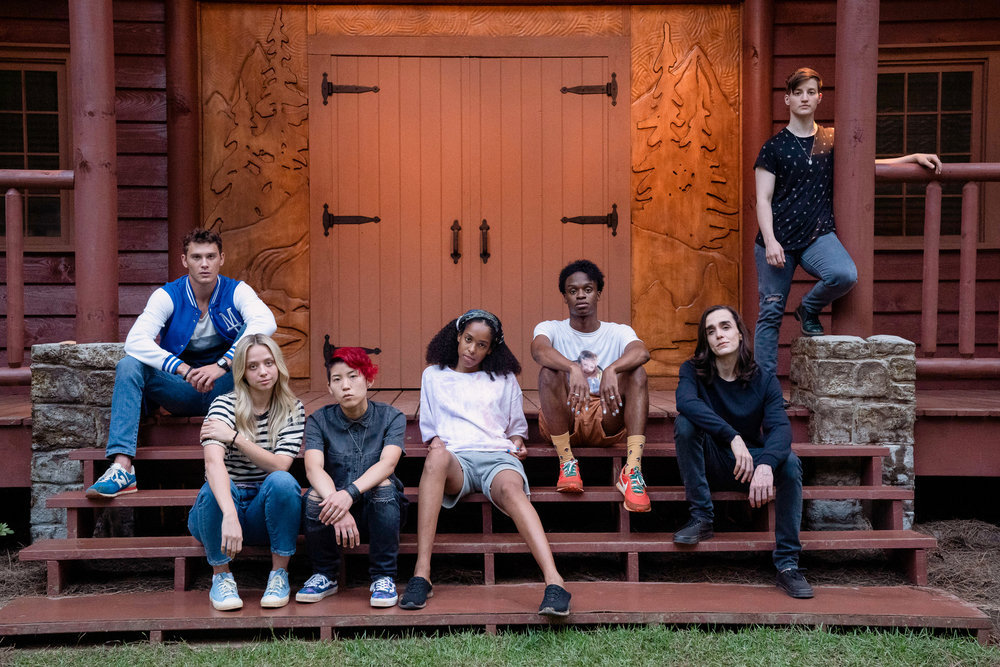The verdict is in on LGBTQ horror film, They/Them
***This review contains spoilers to for the movie They/Them.
Peacock finally released the highly anticipated “slasher” film They/Them on August 5 and the reviews are in.
Sadly, the film falls short of the high expectations viewers had going in given its unique position as the first major studio release (Blumhouse) of a horror movie that was explicitly focused on queer characters. The representation of queer people in the film is great, and the best thing They/Them has going for it, since most of the characters are portrayed by queer actors. There is no denying that at all and it can be celebrated for that fact alone. However, the movie fails to deliver on the two things it was marketed to us as: a horror movie and a queer empowerment film.
They/Them was supposed to be a slasher film. All the elements were there: a remote setting in the woods, no access to the internet or phones, a masked killer stalking the grounds, and Kevin Bacon for goodness’ sake! Kevin Bacon got his career started in Friday the 13th, the granddaddy of all camp slasher films! Having him in this was a stroke of genius. I thought his inclusion was going to be a way of nodding towards the slasher subgenre’s past while breaking new ground towards the future. It wasn’t. Kevin Bacon did a fantastic job, don’t get me wrong. He was amazing as Owen Whistler, the villain you love to hate; the person you want to see the killer carve up! However, the film, in general, let him down.
They/Them was written by and the directorial debut of Oscar-nominated screenwriter John Logan, himself a gay man and self-professed horror fan. His love for the genre is evident, but camp slasher movies are notoriously exploitive and somewhat trashy, which is why I, for one, love them. I think Logan was afraid to push those limits. Taking the tradition of overt and explicit sexuality out of it, camp slashers are famous for their gruesome, over the top kills. They/Them had none of that, with all of the ‘good stuff’ taking place off screen or represented by a splash of blood. Further, there was not much difficulty at all in terms of figuring out who the killer was. It was telegraphed from the very beginning and frankly super obvious based on the killer’s height alone.
The sexuality in the film was tastefully handled but again, not in the style of the slasher films this was representing. The sex and nudity in this movie, which mainly amounted to some bums being shown, always furthered the plot and was never used in an exploitive way, which is one hundred percent warranted in this day and age. However, it makes me question whether a camp slasher film was the correct vehicle to tell this type of story, which at its core is an exposé on the horrors of conversion therapy. The tameness of the kills and the use of sexuality would really land this in the realm of a psychological thriller. As a viewer I was more distressed watching Jordan’s therapy session with Cora and Owen trying to force Toby to shoot the dog, which does a great job of reinforcing the message that conversion therapy is horrific but simultaneously begs the question again if this should have been a slasher movie at all? The murders evoke no emotional response from the audience except for us to think that everyone who was killed completely deserved it.
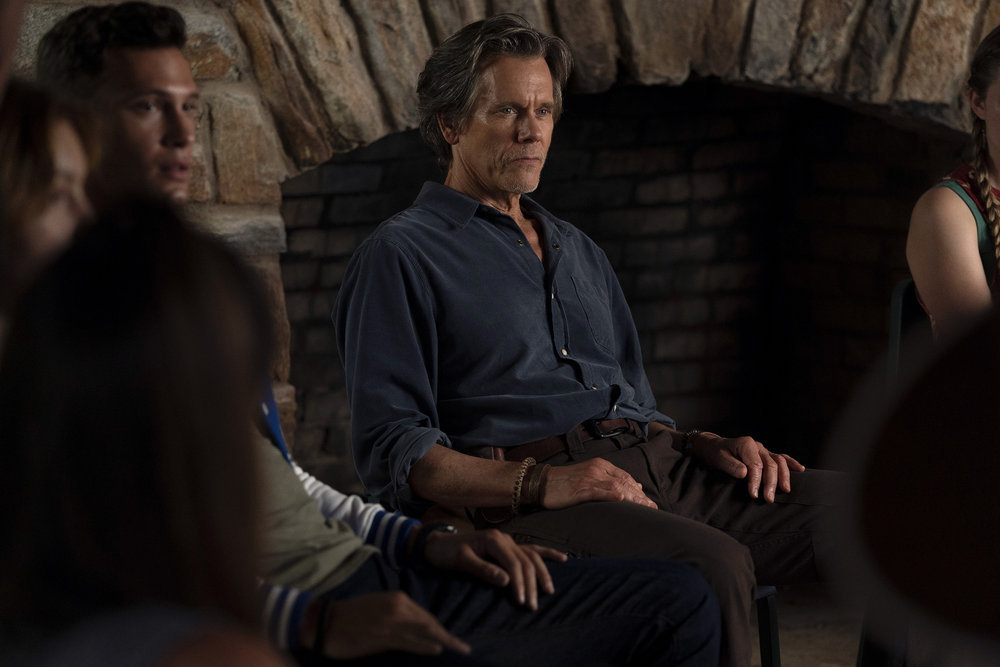
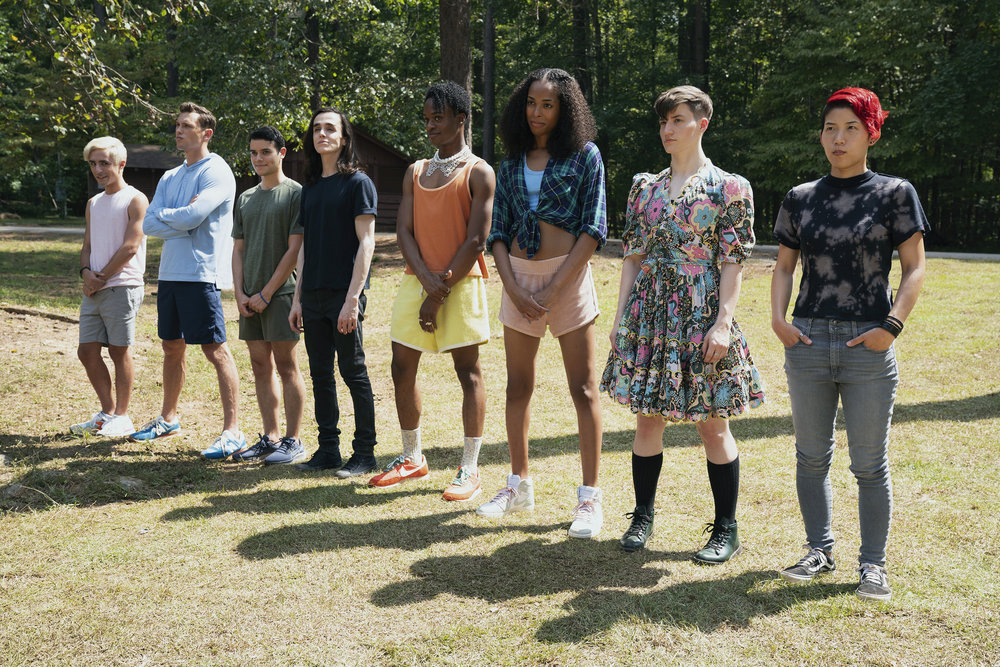
So, yeah the movie does not quite work within the intended genre. It also misses the mark as a queer empowerment film. Again, the representation of trans, nonbinary, bisexual, gay and lesbian characters is amazing, and there are certain elements of empowerment to be found in the film, but it all falls apart in the finale. Let’s start with the positives.
Quei Tann puts in a heartfelt performance as trans teen Alexandra. The character knows who she is and is only at the camp under the threat of being disowned from her parents and separated from her little brother. Alexandra is definitely the big sister to the campers, looking after their emotional needs despite the counselors degrading her and forcing her to room with the boys after discovering that she is trans. She gives Jordan strength when they begin to waiver and is the emotional heart of the film. Her ability to stay true to herself and maintain her dignity despite the treatment she gets is admirable.
Suburban teen Kim (Anna Lore) learns to accept her budding lesbianism by embarking on a relationship with Veronica (Monique Kim) who gives Kim the courage to break free of her preconceived notions of propriety based on her affluent and conservative upbringing. This character went to the camp willingly to purge herself of her lesbian impulses but ends up embracing who she really is by the end of the film. That is a worthy story of empowerment for sure.
Toby (Austin Crute) is a force to be reckoned with as a fierce, femme and proud gay black man. His parents got him to go to camp in exchange for a trip to New York upon completion. I’m a firm believer that presenting anyone who is completely comfortable in their own skin despite what society might think of them is one of the most powerful things you can represent on screen. Being femme, black and queer is still controversial to this day so seeing Toby stand in that power is wonderful.
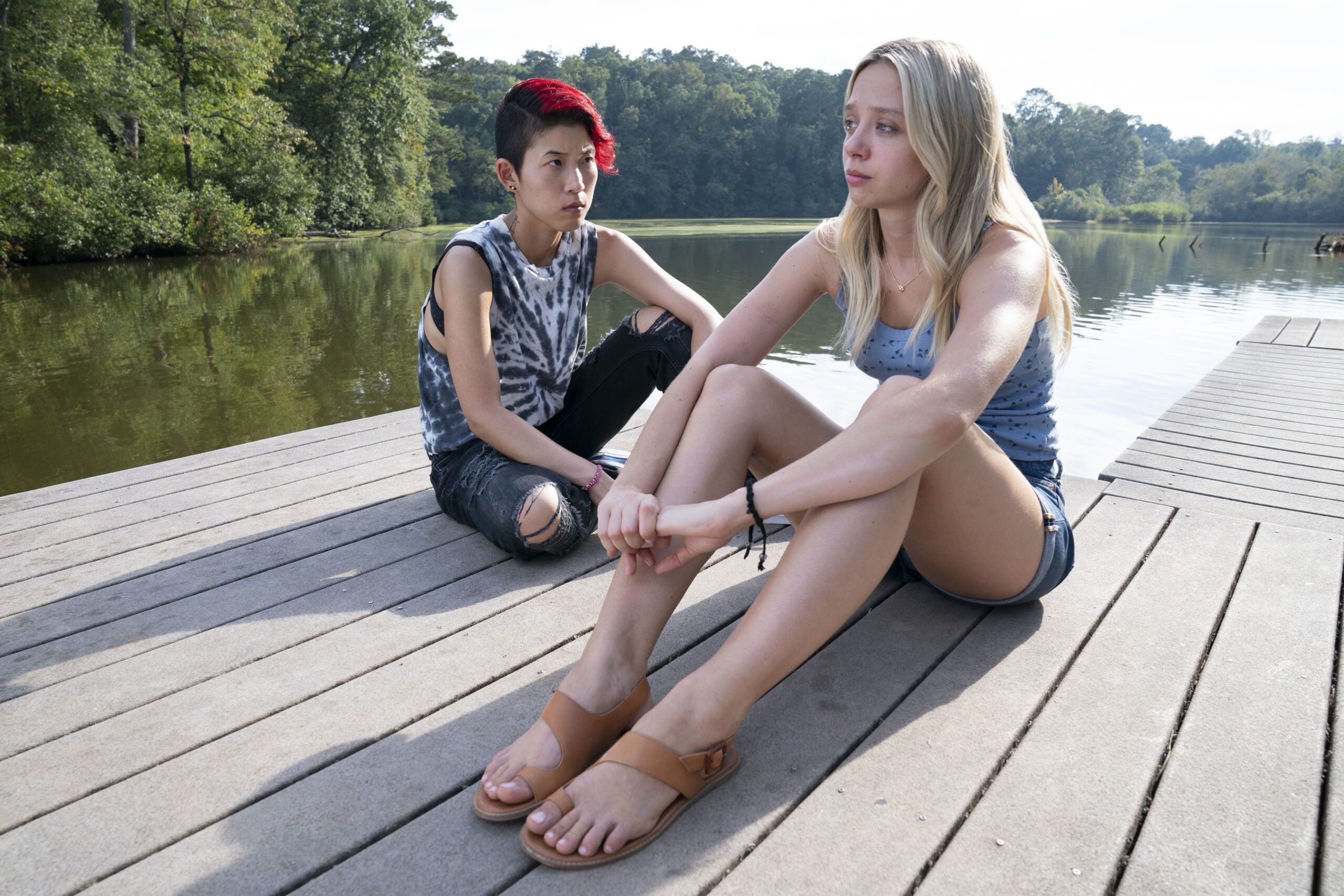
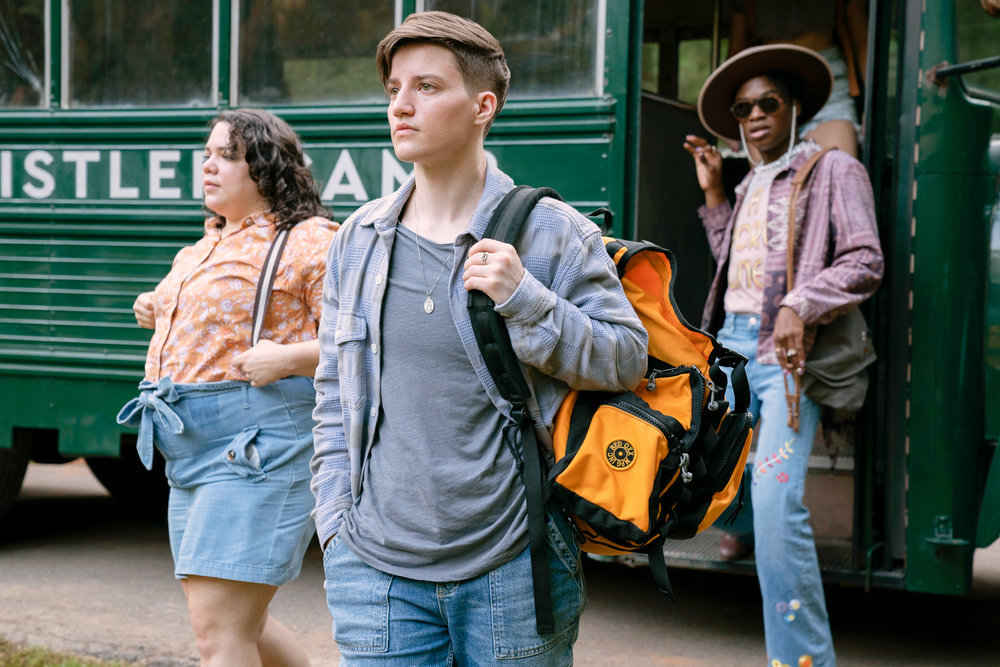
And then there is Jordan, portrayed by nonbinary actor Theo Germaine. Germaine gives a stellar performance in the role. Jordan is assertive, questions authority and is proudly transgender/ nonbinary. They alone sense the danger in the atmosphere despite Owen Whistler’s platitudes and seemingly nonchalant attitude towards the queerness of the campers, despite him being the proprietor of a literal conversion camp. The audience is immediately on Jordan’s side and stays with them until the end of the movie. That’s when thy lose at least half the audience.
In the big final showdown, the killer is revealed to be Nurse Molly (Anna Chlumsky) who came to Camp Whistler in order to exact revenge upon Owen and the counselors who inflicted torture upon her as a teen in order to make her straight (presumably, the film does not explicitly identify what makes Molly queer). Jordan has a gun trained on Molly and Owen. Molly is encouraging Jordan to shoot Owen dead while Owen is trying to convince Jordan to do the same to Molly. Ultimately Jordan takes the path of non-violence and puts the gun down, after which Molly impales Owen and the cops show up, apprehending her.
It’s this path of nonviolence that has upset so many queer viewers, feeling that our oppressors deserve no mercy and that this approach of “two wrongs don’t make a right” spits in the face of those who have fought for our rights. They feel like Jordan should have taken Molly’s offer to team up and go around the country killing off people that work at conversion camps. I completely understand this line of reasoning but I also see why Logan made this choice in his story. Logan, who is 60 years old, is clearly familiar with the slasher genre and so is likely aware of the fact that they can be viewed as morality plays. That is why the chaste final girl traditionally survives the boogey man and those consumed with sex, alcohol and drugs get knocked off by the killer. Its antiquated and silly but it is built into the genre and so I think this is Logan’s attempt at layering some morality into his slasher film, but it is somewhat misguided.
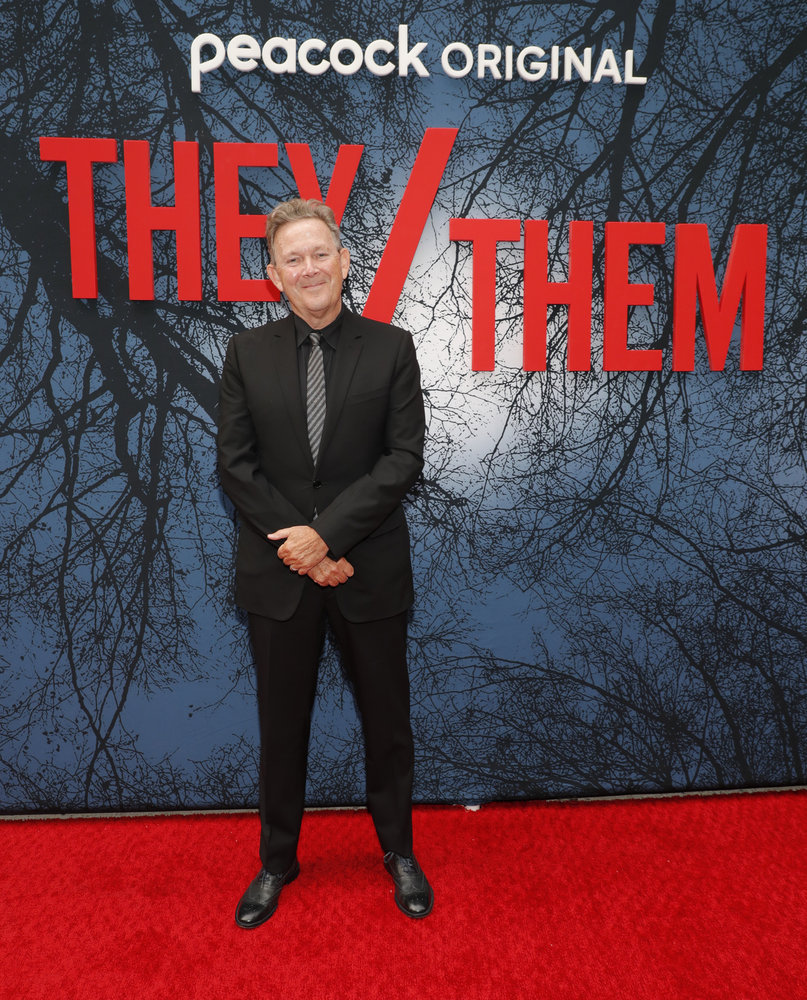
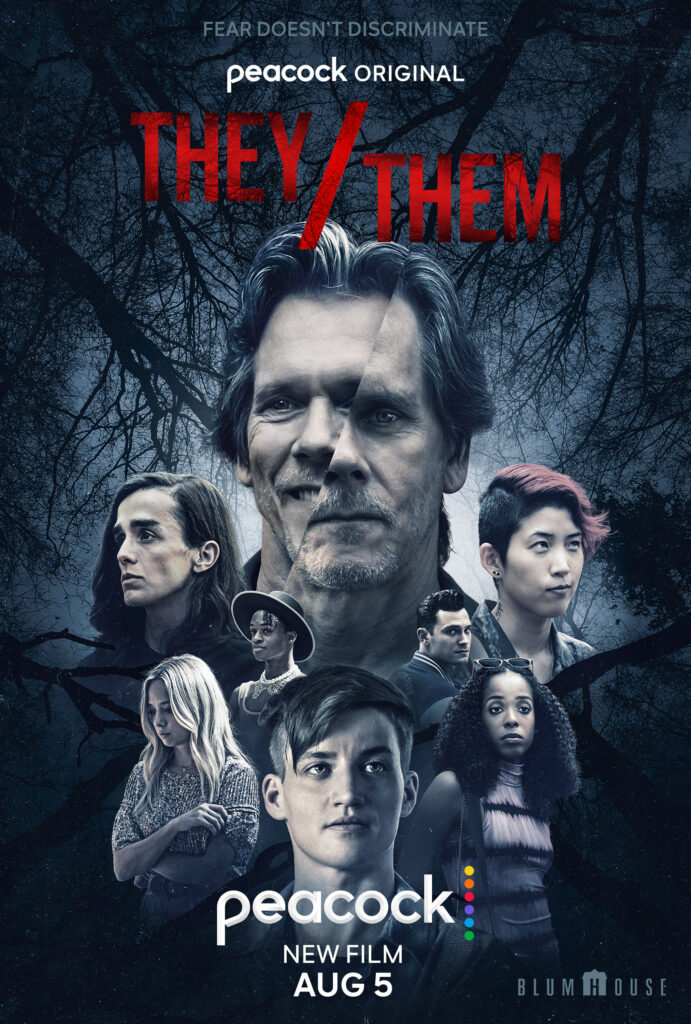
I for one, have no problem with Jordan choosing non-violence. I do, however, take issue with their choice of also being inactive. They could have helped Molly escape the police, but that would make them complicit with murder and if the character couldn’t tolerate that type of violence, then fine, I can accept that too. At the very least, however, they could have taken on the mission of crusading against conversion camps. They could have told their story and exposed its evils to the public. Some indication of a future in advocacy for Jordan would have served Logan well but instead, Jordan’s last line in the film, when asked what they are going to do next is: “Get emancipated (from their parents), Live MY life.” And with that indication that Jordan is just done with this harrowing experience is where the story loses any hope for redemption.
The final person in these films is nearly always a heroic archetype of someone who chooses to do the right thing in the face of overwhelming odds and opposition. A better final line would have been something along the lines of “Get emancipated and make sure no one ever goes through what we went through again.”
A movie specifically about queer teens at a conversion camp was going to be political no matter what and while I can appreciate a stance of non-violence, queer people can never afford a stance of complacency or inaction. So, while the intent is well understood, its ultimately a bit tone deaf, especially in light of recent events and the current lineup at the Supreme Court. Queer people are still very much a target and Jordan as the featured character of the first mainstream queer horror film could have been used to better exemplify our fighting spirit which is necessary for our survival.
They/They is now streaming, exclusively on Peacock.

